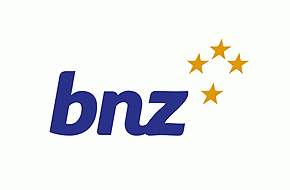
BNZ's interim profit has jumped 18% as its net interest margin rose and due to favourable mark to market movements on offshore debt instruments.
The bank's net profit after tax for the six months to March 31 rose $74 million, or 18%, to $490 million from $416 million in the same period of its previous financial year. Total operating income also rose 18%, or $192 million, to $1.27 billion. Operating expenses increased $84 million, or 18%, to $542 million with BNZ saying its interim results include an allowance for costs to support the "reshaping of the bank" to help it become faster, more personal and innovative. Credit impairments increased $5 million to $48 million.
BNZ reported a nine basis points increase in its net interest margin to 2.24%, which the bank attributed to improved margins and lower funding costs. Meanwhile, its gains less losses on financial instruments such as bonds, surged $75 million to $97 million, and net interest income rose $97 million, or 11%, to $958 million.
Over the six months from September 30 last year to March 31 this year BNZ's lending grew $800 million, or 1%, to $80.2 billion. Deposits and other borrowings rose $3.1 billion, or 5%, to $63 billion.
For the March half the bank's cost to income ratio was down 30 basis points year-on-year to 39.0%, with its cash earnings on average assets up three basis points to 1.19%.
"These results mean BNZ is well placed to respond to an unprecedented change in the way customers are using digital technology. We are accelerating an ambitious transformation strategy. Our sights are set on the changes that will make the biggest difference to our ability to consistently offer our customers a seamless banking experience," CEO Angela Mentis, who succeeded Anthony Healy earlier in 2018, said.
'We will be ruthlessly vigilant in ensuring that our customers' trust in us is well placed'
In BNZ's press release Mentis also addressed the elephant in the room being Australia's Royal Commission on Financial Services. BNZ is owned by National Australia Bank (NAB).
"BNZ is not complacent about the issues emerging from Australia. We will be ruthlessly vigilant in ensuring that our customers' trust in us is well placed," Mentis said.
"We assess global best practice in relation to conduct and are taking learnings from several recent financial sector inquiries across Australia, the UK and the US. The Royal Commission is helping shape this work, but our focus is deliberately broader than that to ensure we are across all relevant findings and learnings," Mentis added.
The table below, released by NAB, shows BNZ's market share in key banking sectors.
Meanwhile, NAB posted a 0.2% drop in interim cash earnings to A$3.289 billion. It's paying an unchanged half-year, fully franked dividend of A99 cents per share, which is equivalent to 81% of cash profit.
NAB said it plans to "exit" its wealth management business MLC. This will be done by the end of 2019, potentially via a trade sale, demerger or initial public offering. However, NAB wants ongoing arrangements with MLC offering NAB customers advice and products.
1 Comments
Is that more to do with improved performance, or a really bad half March 17. In the linked article, the report last year was it was terrible drop in profit, due to $95m losses in fair value movement and hedging. So, this half, it's just normalised that, right?
I am not sure how much seasonality there is, but profit was down on the September half by 6% ($30m)

We welcome your comments below. If you are not already registered, please register to comment
Remember we welcome robust, respectful and insightful debate. We don't welcome abusive or defamatory comments and will de-register those repeatedly making such comments. Our current comment policy is here.